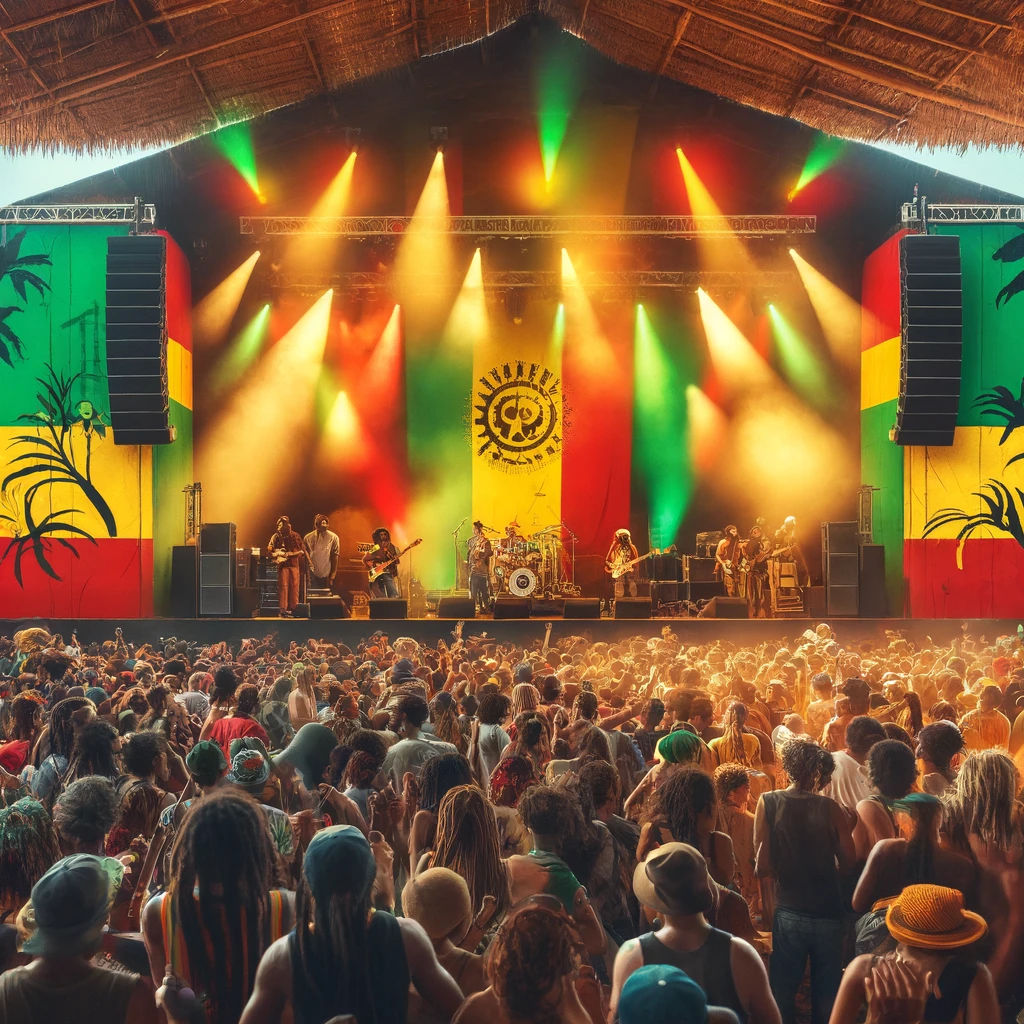Reggae music festivals play a pivotal role in promoting Rastafari culture globally. These vibrant gatherings are more than just music events; they are cultural celebrations that spread the messages of unity, peace, and social justice inherent in Rastafari beliefs.
1. Origins and Evolution
Reggae music, deeply intertwined with Rastafari culture, emerged in Jamaica during the 1960s. As the music gained international acclaim, festivals dedicated to reggae began to sprout worldwide, providing a platform for Rastafarians to share their culture and philosophy with a broader audience.
2. Cultural and Spiritual Significance
Reggae festivals are often imbued with spiritual and cultural significance. They serve as a gathering place for Rastafarians and reggae enthusiasts to celebrate life, spirituality, and the enduring messages of reggae music. These festivals typically feature Nyabinghi drumming, chanting, and performances by iconic reggae artists whose music conveys the principles of Rastafari.
3. Promoting Unity and Social Change
The central themes of reggae festivals include unity, love, and social justice. These events promote messages of peace and resistance against oppression, reflecting the Rastafari commitment to social change. Through powerful lyrics and communal activities, attendees are encouraged to embrace these values and advocate for a better world.
4. Global Impact and Influence
Reggae music festivals have a significant global impact, attracting diverse audiences from all walks of life. Major festivals like Reggae Sumfest in Jamaica, Rototom Sunsplash in Spain, and Rebel Salute in Jamaica, among others, draw international crowds. These festivals help to spread Rastafari culture and reggae music’s messages of hope, resilience, and empowerment across the globe.
Closing Thoughts
Reggae music festivals are not just about entertainment; they are cultural celebrations that amplify the messages of Rastafari. They foster unity, promote social justice, and keep the vibrant spirit of Rastafari culture alive.

